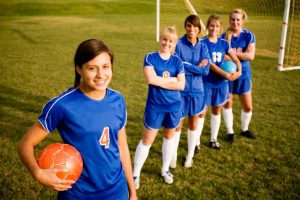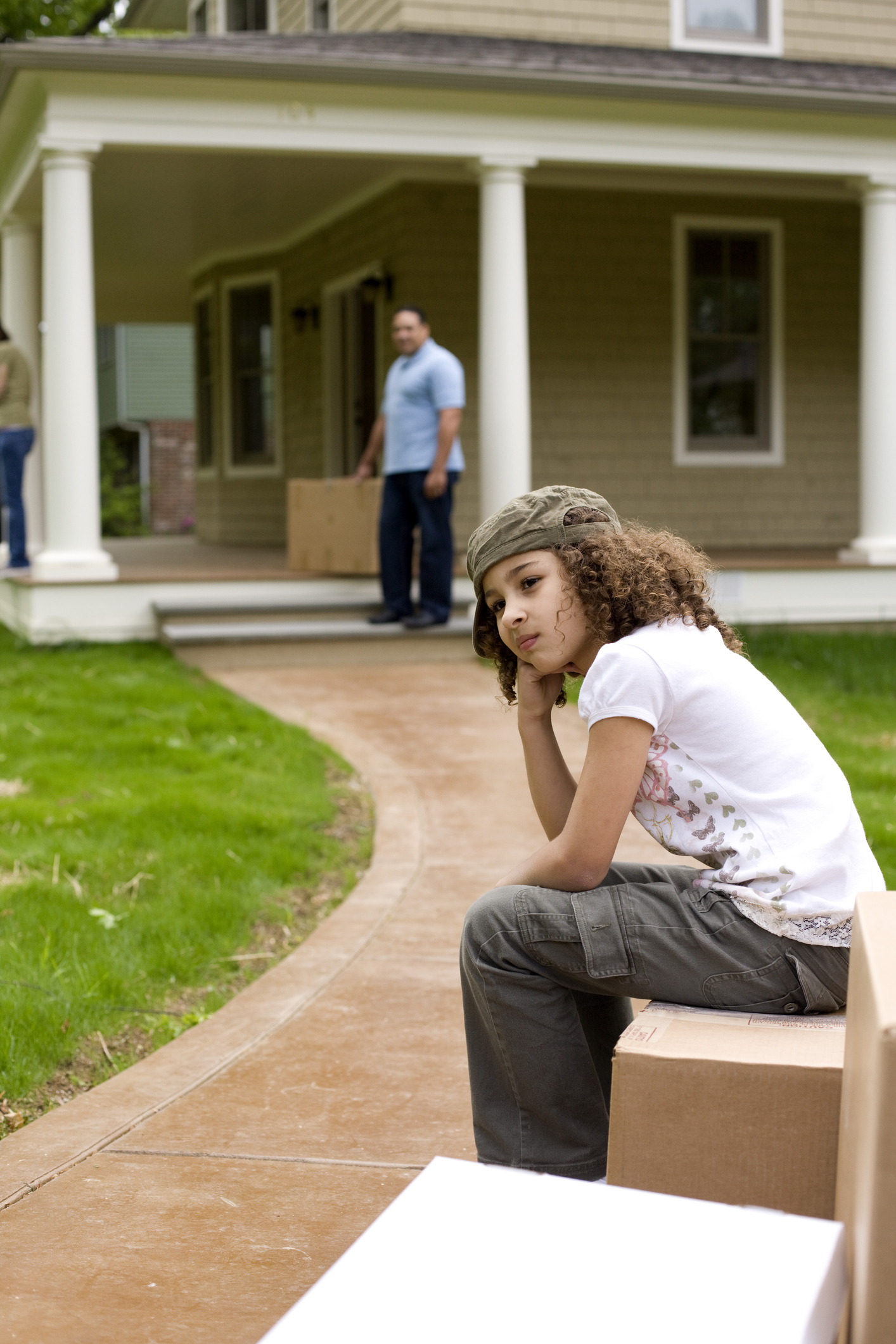Even for children who enjoy and are enthusiastic about school, relocation after a move can provoke a tremendous amount of anxiety and fear. One thing that may help them navigate this difficult time is participation in youth sports.
“Participation in sports provides a great venue for children of all ages to not only make immediate connections with same-aged peers, but to re-establish a level of control over their new, unknown world,” says David Finch, M. Ed, CSCS, a former school psychologist for the Chicago Public School system and owner of an athletic training facility in Middleton, Wis.
“My own 11-year-old son experienced this transition two years ago following our move from Illinois to Wisconsin, and in the weeks leading up to his first day in a new 4th grade classroom he felt a great deal of trepidation.”
Nothing, he later shared with his dad, was “scarier” than his first outdoor recess with his new classmates; not knowing anyone and not knowing where to go or what to do on the playground. Soon, however, he was invited to join in on a soccer game.
Just like that, Finch’s son entered a new social circle, and many of those boys from that first day are now his closest friends. “He has since participated in numerous sports in his new community, which have not only helped to shape his identity, but have also been a major source of satisfaction and positive socialization.”
In even the most intense of social settings, sports can provide the framework for children to establish a level of comfort in their school setting, and to build future relationships that are necessary for adequate social adjustment.”
HOW SPORTS HELP AFTER A MOVE
Taunya Tinsley, Ph.D, a counselor in private practice in Pittsburgh, a counselor educator and a member of the American Counseling Association (ACA), notes that involvement in any extracurricular activities helps increase social and personal development.

Being a member of an athletic team, feeling connected, working with a diverse group of people, and gaining self-esteem can all help to ease a child’s transition after a move.
There’s a theory called positive youth development, which focuses on the concept that beneficial relationships with people, organizations and activities help make a contribution to self, family or community, all of which enhance a child’s sense of belonging.
“So if someone is moving, an adolescent or child, sports can help bridge the gap of feeling connected to the community, increasing their self-esteem, and their social relationships,” says Tinsley.
These relationships include their peers, as well as coaches, adult mentors and, in the case of school-related sport or extra curricular activities, teachers and administrators.
Sports can also provide kids with the motivation to do well in other areas of their lives. Ideally, in order to play sports you have to keep up with academics, maintain a certain grade point average and display good conduct all-around.
“Two years ago I was at a conference where the CEO of Citi Group, the international finance organization, was speaking of the employees in that industry and he said if he had his way, every employee would be a former athlete because they bring skills that they have developed as being part of sports that would be beneficial to the finance industry and to business in general,” says Tinsley.
Those leadership and communication skills along with the ability to deal with a diverse culture in our global environment are highly sought after adult skill sets that start as part of a team on a ball field, a wrestling mat or the basketball court.
SPORTS MAKE A DIFFERENCE
Research shows that participation in sports teams and physical activity clubs, often organized by the school and held outside of the regular day, can improve grade point average, school attachment, educational aspirations and the likelihood of graduation.
Howell Wechsler, director of the Division of Adolescent and School Health for the Centers for Disease Control and Prevention says a lot of studies show that more time for PE and other physical activity help improve academic performance.
He and colleagues reviewed 50 studies that examined the effect of school-based physical activity on academics.
And aside from improving grades, when kids are feeling emotionally vulnerable, homesick for their old house or friends, or apprehensive about fitting in after relocation, sports can be the catalyst that can help make them feel better, show them they can fit in the new environment, and help begin to foster friendships with their sports-playing peers.
HOW TO USE SPORTS TO HELP YOUR CHILD TRANSITION AFTER A MOVE
- If they already play a sport, check out that sport’s culture in the new town.
- Sign them up for sports teams, classes and other extracurricular activities as soon as possible.
- If the move occurs in summertime, register for a camp, a summer team, join a community pool or other summer sports league.
- Tour the neighborhood and point out the opportunities for physical activity like proximity to the pool or baseball field, a lake for fishing, or a nearby skateboard park.
- Ask neighbors what sports their children play and where’s the best place to sign up.
- Talk with the school administrator about getting on school teams.
“If a child is having a challenging adjustment to a move, school counselors are trained to help a child get integrated into the community,” says Tinsley.
Approach the counselor for advice and have the counselor recommend groups that might be right for more introverted, shy or new kids who are having a difficult adjustment.



